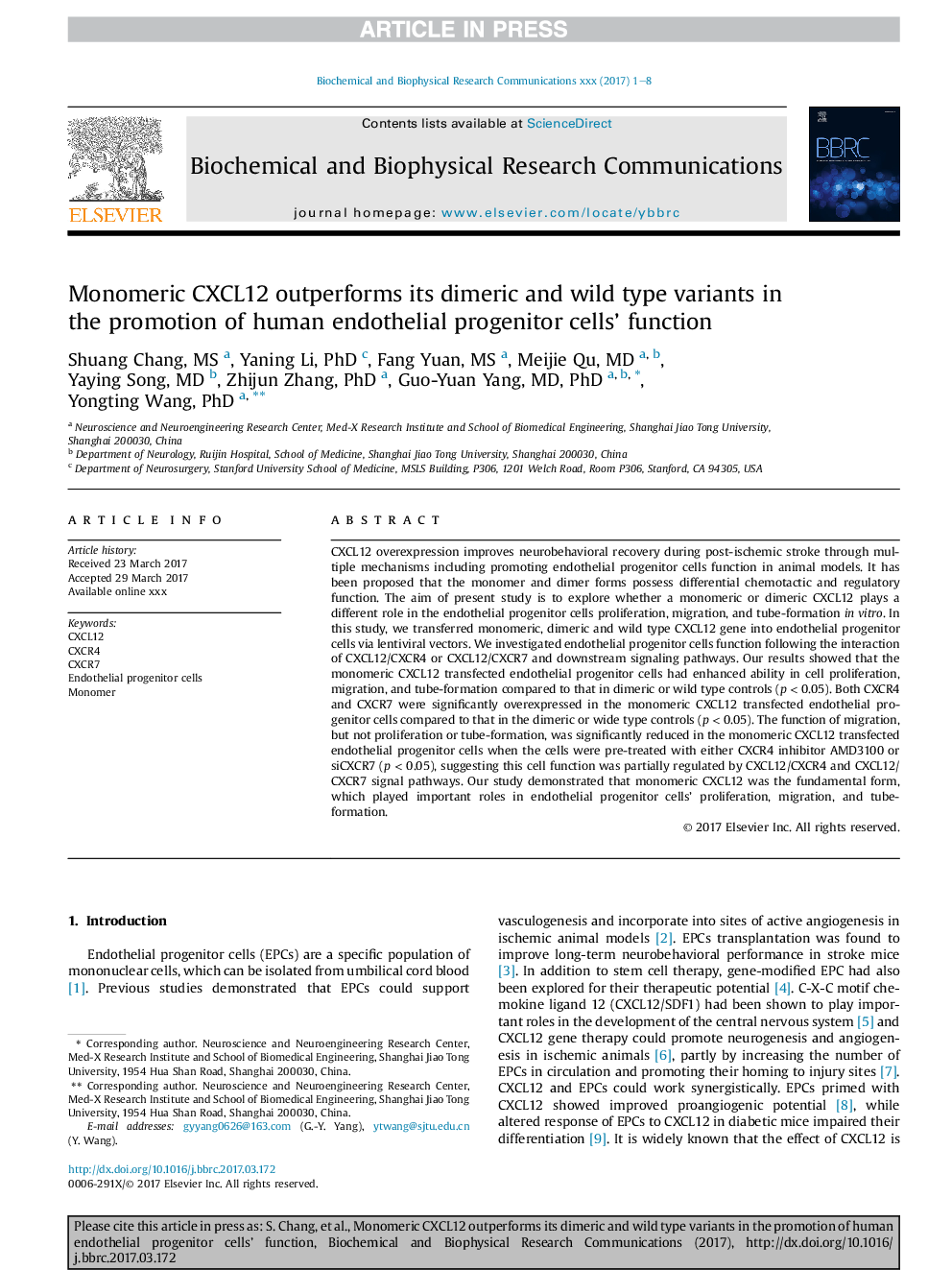| Article ID | Journal | Published Year | Pages | File Type |
|---|---|---|---|---|
| 5505777 | Biochemical and Biophysical Research Communications | 2017 | 8 Pages |
Abstract
CXCL12 overexpression improves neurobehavioral recovery during post-ischemic stroke through multiple mechanisms including promoting endothelial progenitor cells function in animal models. It has been proposed that the monomer and dimer forms possess differential chemotactic and regulatory function. The aim of present study is to explore whether a monomeric or dimeric CXCL12 plays a different role in the endothelial progenitor cells proliferation, migration, and tube-formation in vitro. In this study, we transferred monomeric, dimeric and wild type CXCL12 gene into endothelial progenitor cells via lentiviral vectors. We investigated endothelial progenitor cells function following the interaction of CXCL12/CXCR4 or CXCL12/CXCR7 and downstream signaling pathways. Our results showed that the monomeric CXCL12 transfected endothelial progenitor cells had enhanced ability in cell proliferation, migration, and tube-formation compared to that in dimeric or wild type controls (p < 0.05). Both CXCR4 and CXCR7 were significantly overexpressed in the monomeric CXCL12 transfected endothelial progenitor cells compared to that in the dimeric or wide type controls (p < 0.05). The function of migration, but not proliferation or tube-formation, was significantly reduced in the monomeric CXCL12 transfected endothelial progenitor cells when the cells were pre-treated with either CXCR4 inhibitor AMD3100 or siCXCR7 (p < 0.05), suggesting this cell function was partially regulated by CXCL12/CXCR4 and CXCL12/CXCR7 signal pathways. Our study demonstrated that monomeric CXCL12 was the fundamental form, which played important roles in endothelial progenitor cells' proliferation, migration, and tube-formation.
Related Topics
Life Sciences
Biochemistry, Genetics and Molecular Biology
Biochemistry
Authors
Shuang MS, Yaning PhD, Fang MS, Meijie MD, Yaying MD, Zhijun PhD, Guo-Yuan MD, PhD, Yongting PhD,
